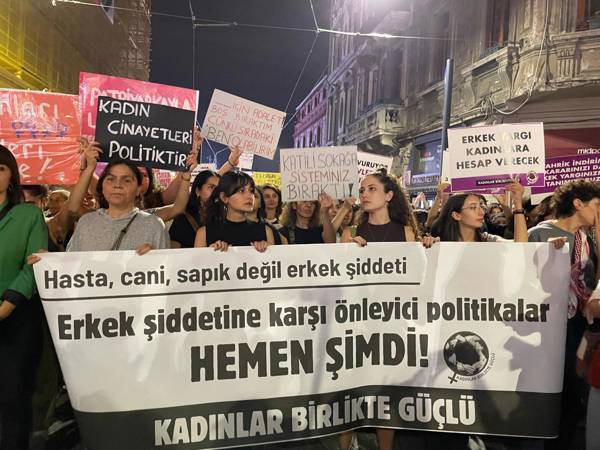Rise of Incel ideology in Turkey ‘fueled by government policies’


Increasing male violence in Turkey highlights a deepening of gender inequality and misogyny. Recently, one ideology in particular has drawn attention for its connection to these crimes: the Incel ideology.
Reinforced by a perception of impunity, the Incel ideology further fuels gender inequality and legitimizes violence against women.
In discussing the political and social history of gender and women’s issues in Turkey, political scientist and writer Prof. Alev Özkazanç, communications scholar and journalist Orhan Şener Deliormanlı, and Sakarya University sociologist Dr. Yaşar Suveren, who studies misogyny, shared insights into the Incel movement and its misogynistic beliefs.
‘Misogyny at the core’
Dr. Yaşar Suveren explains that Incels primarily embody a mindset and behavior rooted in misogyny.
“We’re dealing with a group of individuals who are isolated from society, unable to establish healthy relationships or communication with women, and who rationalize this isolation by blaming women. In short, these are lonely men with weak ties to society who hold hostile views towards women, whom they accuse of being the cause of their personal issues.”
According to Suveren, misogyny is at the core of the Incel movement. Believing women consciously exclude them, these individuals project their inadequacies and frustrations outward, seeing women as a threat. He notes that recent violent incidents in Turkey reflect the violent tendencies of Incel individuals: “In some countries, individuals identifying as Incels have been involved in violent incidents. While it’s difficult to say they operate in an organized or systematic manner, online radicalization could present a social threat.”

Turkey bans Discord after revelations of 'incel' cyberbullying, child exploitation
Growing radicalization
Communications scholar and journalist Orhan Şener Deliormanlı highlights the radicalizing effect of virtual spaces:
“In online settings like Discord rooms, people with similar mindsets gather and become even more radicalized. In physical settings, societal pressure might keep them in check, but in a virtual space, they can grow more brazen and act as a collective.”
Deliormanlı also emphasizes the generational shift over the past 20 years, with fewer children growing up on the streets and more being raised in front of screens:
“A generation has emerged that socializes from home, satisfying biological needs through games and pornography without even stepping outside. This isolation limits real-life encounters with women and deepens their misogyny.”
A distinct form of misogyny
Political scientist and writer Alev Özkazanç describes the Incel ideology as a unique form of misogyny. She explains the development of the Incel character as follows:
“At its core, the Incel ideology is about hatred of women. Though new in Turkey, this ideology originated as a digital community in North America. This group believes women are inherently unresponsive to them and always will be. This conviction leads to a perception that places men at the bottom of a masculine hierarchy.”

‘Femicides are political’: Protests across Turkey after murders of two 19-year-old women
The crisis of masculinity
Özkazanç explains that the Incel ideology is not just about women but is also tied to men who see themselves at the bottom of the male hierarchy. Incel individuals feel they occupy the lowest rung of society, and their inability to attract women pushes them further down this perceived hierarchy.
She emphasizes that Incel ideology reflects one of the most extreme symptoms of a masculinity crisis, adding:
“Incel ideology is based on a sense of defeat and hopelessness, often combined with violent nihilism. In Turkey, the government’s long-standing drift away from gender equality, coupled with actions like the withdrawal from the Istanbul Convention, has deepened this crisis and serves as a tacit encouragement for men.” (BŞ/VK)





